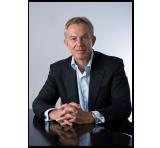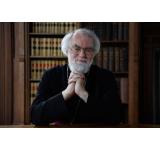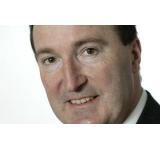What’s the Place of Religion in Public Life?
- In conversation
- Tony Blair Former Prime Minister
- Charles Moore Journalist, The Daily Telegraph
- Rowan Williams Archbishop of Canterbury
Questions for debate
Some of the speakers in previous debates – like Bishop Michael Nazir-Ali – believe that religion has been pushed out of public life, marginalised, even persecuted. Others, like Richard Dawkins, think it’s not been pushed out far enough and still has undue influence in government, schools and so on. How well does the UK ‘do’ religion in public life, and what improvements are needed?
Conclusions from the debate
Religion has always made an important contribution to public life, and continues to do so. Religious convictions can and should be brought into public debate and decision-making in a democracy. Few religious people in the UK want to impose their truth on others; most are happy to abide by the democratic process. The state and religious communities should work in partnership – to do so makes both more responsible.
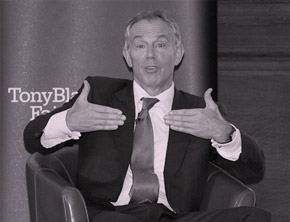
"I think what we need is a combination of religion-friendly democracy and democracy-friendly religion… religion should have its proper place but in the end the processes of democracy must be supreme in the ultimate decision making."
Points of Debate and Disagreement
| Being religious involves believing that you have unique access to the truth and that ‘error has no rights.’ |  |
Most religious people do not believe that they have a unique hold on truth, and think that ‘there are many ways to God.’ |
| Religion is primarily a matter of beliefs which are held to be true by their followers (and false by their critics). |  |
Religion has as much, if not more, to do with values, with how one behaves, with relationships with God and other people. |
| Britain’s Christian heritage is under threat as never before, from human rights legislation above all. |  |
Christianity still has access to the public sphere (e.g. schools, and in handling tragedy and celebration), and human rights have religious roots. |
| Organised religion in the UK is too wary of the media and does not communicate well in public life. |  |
Public religion isn’t so much about column inches or a national voice, but action at the local level. |
Practical Suggestions
State and religious communities should work in a close relationship, so that the former cannot ignore the latter and the latter cannot just opt out of public life and responsibility.
At a time when religious extremists often shout loudest and gain a disproportionate hearing, it is important to support democracy-friendly religion around the globe.
Rather than condemning religious people for irrational and false beliefs, those who attack religion should pay more attention to the values, ways of life, and relationships/communities which are what count for many religious people.
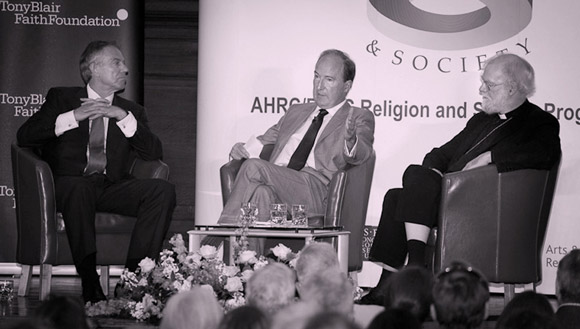
"I see the extent to which people of faith feel victimised or marginalised, I’m not sure they always see it clearly… a few extremely hard cases have created a slightly highly-coloured view of where we are."
"The more organised the religion is the less keen it seems to be on clear communication."
"I think the position of religion in public life is not just a matter of column inches or whatever, I think it’s very much about how it works on the ground in localities."
How the Media Reported the Debate
"For what it lacked in controversy, a head-to-head between Tony Blair and Rowan Williams last night made up for in confession."
"Moore deplored the way the press had condemned the very notion that Blair might have prayed with George Bush. ‘Did you pray with him, by the way?’ he demanded. Blair was unruffled. ‘It wouldn’t have been wrong,’ he said, ‘but it didn’t happen. And I’m sure that, as a journalist, you understand the distinction.’ ‘Touche!’ Moore cried."
"On the question of women bishops, Dr Williams said that he had recently learned ‘just how difficult it is for women to hear an all-male body pronouncing on their future.’"
